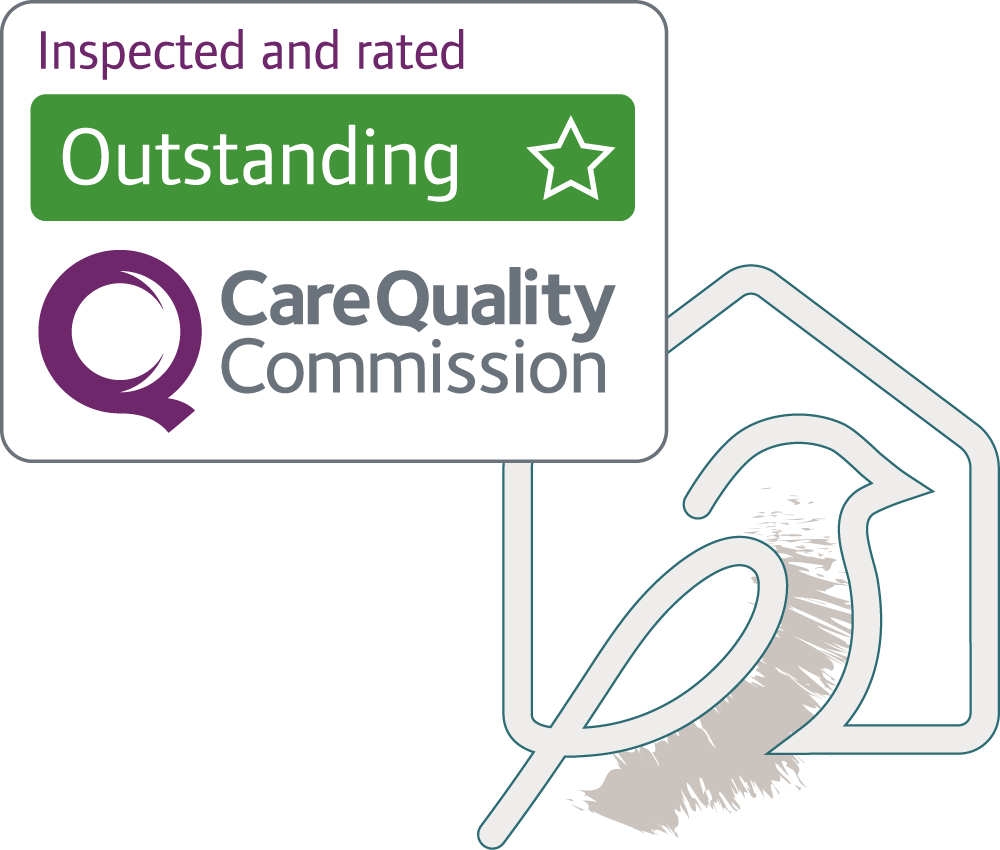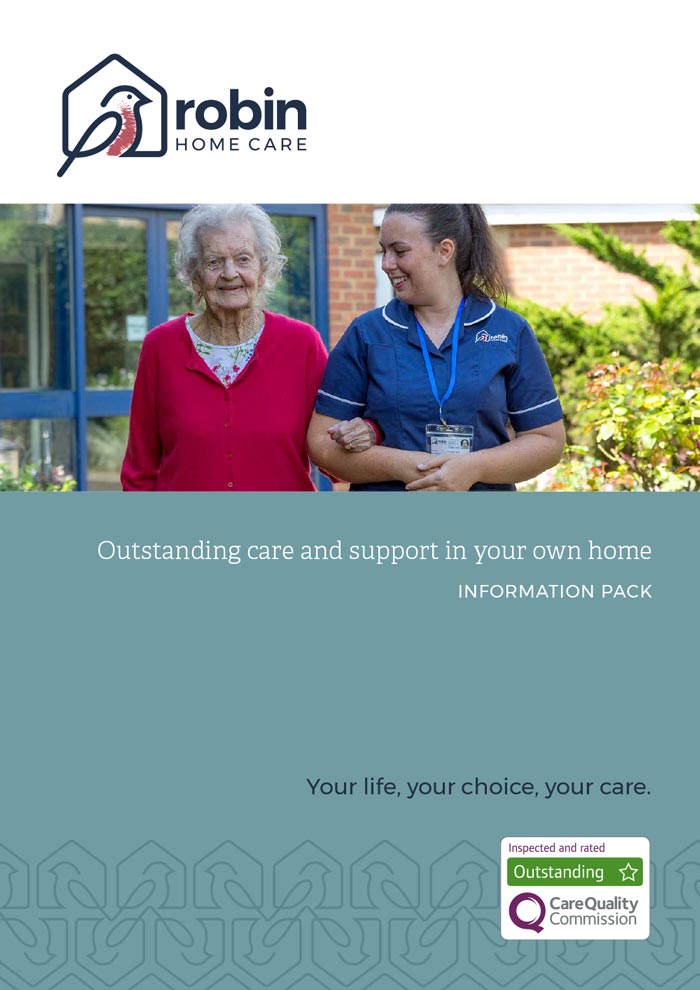Learning disabilities
Compassionate and professional learning disabilities home care in Ealing tailored to individual needs.
Learning Disabilities Home Care Ealing
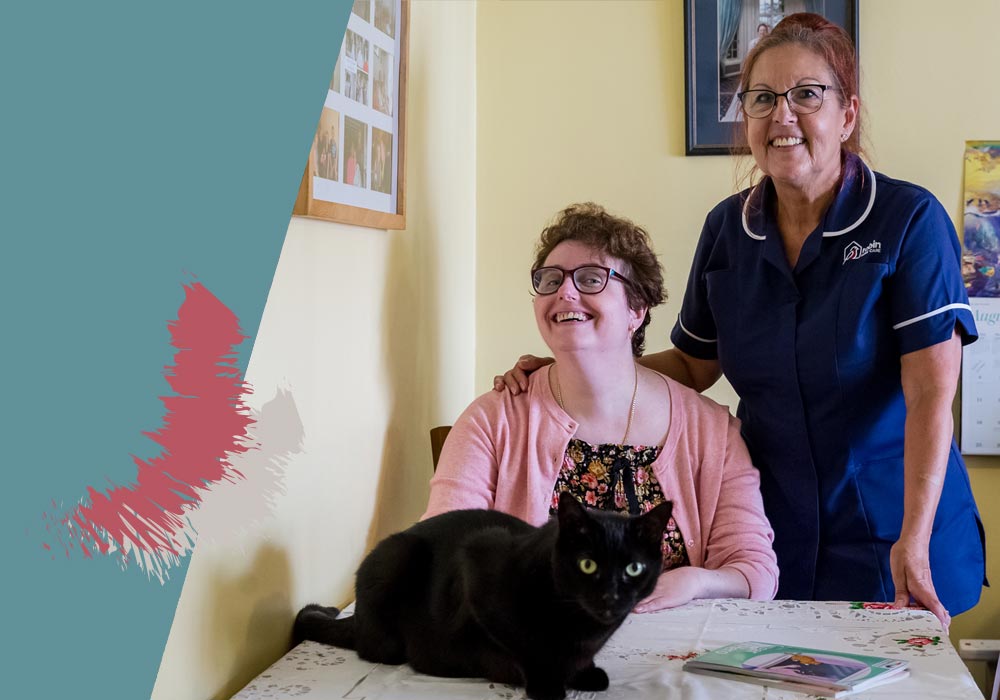
Kind, compassionate and professional learning disabilities home care in Ealing
The level of support needed for people with learning disabilities depends, completely, on the individual. For example, someone with a mild learning disability may only need support with day to day tasks or companionship. However, someone with a severe or profound and multiple learning disability may need full-time care and support with every aspect of their life.
Robin Home Care and our compassionate carers can help. We can play a central role in the identification of ongoing needs for our clients with learning disabilities even if they do not communicate well verbally.
Tailored and flexible care and support planning designed for each individual
People with learning disabilities are more prone to a wide range of additional physical and mental health problems. As a result, identifying the specific care and support needs of each person requires a professional and sensitive approach. This is because they may take longer to learn and may need support to develop new skills, understand complicated information and communicate.
For example, it is well-established that people with Downs syndrome have increased risks of heart problems and hypothyroidism. Also, the incidence of health problems increases with the severity of the Downs. It has been identified that people with autism could also have learning disabilities. In addition, around 30% of people with epilepsy have a learning disability as do many people with cerebral palsy.
Robin Home Care has gained significant experience caring for people with a profound and multiple learning disability (PMLD). PMLD occurs when a person has a severe learning disability combined with other disabilities that significantly affect their ability to communicate and be independent. Someone with PMLD may have difficulty seeing, hearing, speaking and moving. This means they are likely to need a team of carers to help them with most areas of everyday life, such as eating, washing and going to the toilet.
At Robin Home Care, we start with a full assessment of the factors affecting the person we are going to support. This means that we can create a flexible and proactive care service designed to support people in a way that best suits them.
There are many factors that influence an individual support plan and these can include:
OUR MISSION
Exceed expectations, with transparency, teamwork
and compassion
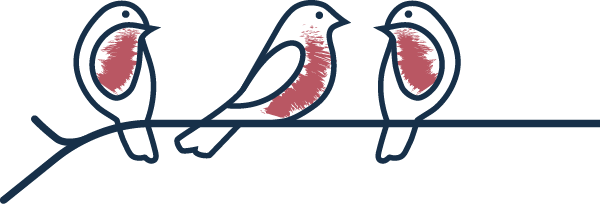
Speak to us
For all your home care needs, contact us to see how we can help.
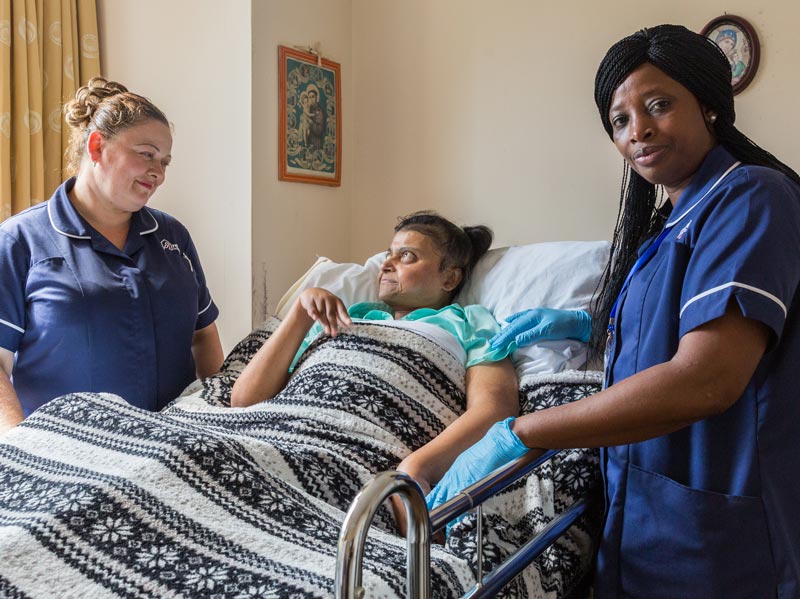
Personal care and hygiene
We can support your daily personal care needs in a sensitive and understanding way. You choose what you want done and we provide the care in the way you prefer.
Companionship
In all cases our carers provide social interaction and companionship, when they visit. We want to be more than just carers. We go in with a smile because we want to help to do what we can to make sure that every day is a good day.
Live-in care
We can offer the peace of mind which comes from having a trained live-in carer available in your own home with our live-in care service.
Elderly Home Care
Studies on the presence of mental illness in older people with learning disabilities also found significant need to recognise and then deal with symptoms of mental illness, particularly depression and dementia.
Physical Disabilities
A physical disability of one form or another can affect any of us. At Robin Home Care our carers are trained to understand the best way to assist our clients to overcome physical challenges and live their lives to the full.
Electronic monitoring of our carers and the care delivered to you
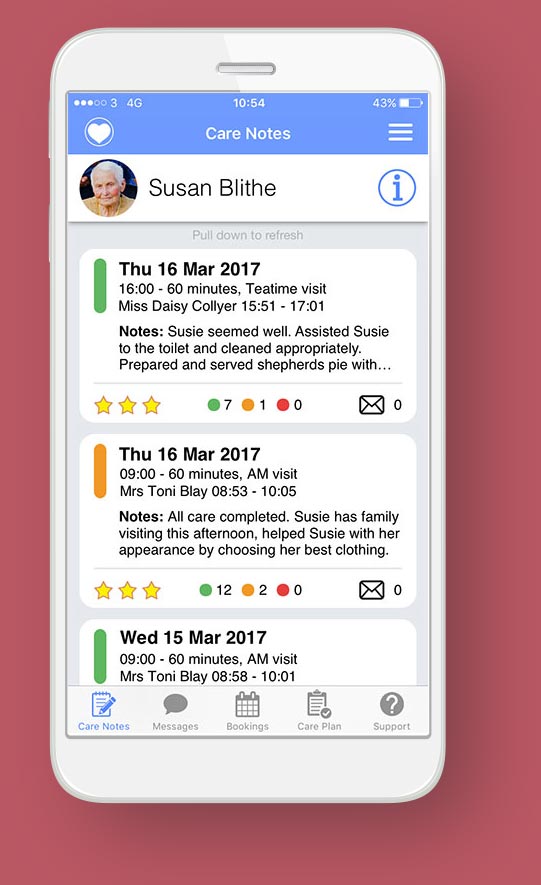

As part of our service, we use a computerised monitoring system using mobile phones to monitor that our carers arrive on time, carry out all the tasks that you have specified and write notes on how the visit went. If you so wish, access to these notes can be given to family members to ensure that everyone who needs to be informed of how the care is delivered gets access to the information required.
Peace of mind, accountability and transparency are at the core of our systems and processes.
With the App you can:
VIEW CARE NOTES FOR COMPLETED CARE VISITS
COMMUNICATE WITH THE CARE PROVIDER
VIEW THE VISITS, OUTCOMES AND TASKS
SEE THE SCHEDULE OF CARE VISITS
You can rely on an Outstanding company
Continuity of care is extremely important. Robin Home Care fully understands that long term relationships between a person with learning disabilities and their care team will deliver an ‘Outstanding’ service. This continuity allows the carer and the rest of the team to recognise changes in health conditions and act quickly to deal with potential difficulties. You can be sure that Robin Home Care will provide the quality and continuity of care to deliver a service you can trust.
The Care Quality Commission, the regulator for the health and social care sector, has recognised Robin Home Care’s performance and rated us as ‘Outstanding’ after a recent inspection.
With the right care and support, a full and independent life is possible
As an example of how people with a learning disability can lead full, proud and enjoyable lives we would like to share a mencap video published on twitter featuring Berge and his story.
As with other conditions associated with learning disability, every person with Down’s syndrome is an individual and, with the right support and opportunities, can lead a happy and fulfilling life.
According to the foundation for people with learning disabilities (part of the Mental Health Foundation)
“Approximately 1.5million people in the UK have a learning disability. It is estimated that in England in 2011 1,191,000 people have a learning disability. This includes 905,000 adults aged 18+ (530,000 men and 375,000 women) (Source: People with Learning Disabilities in England 2011).”
Their website has a Help and information section which may be of use – mentalhealth.org.uk/learning-disabilities/help-information
